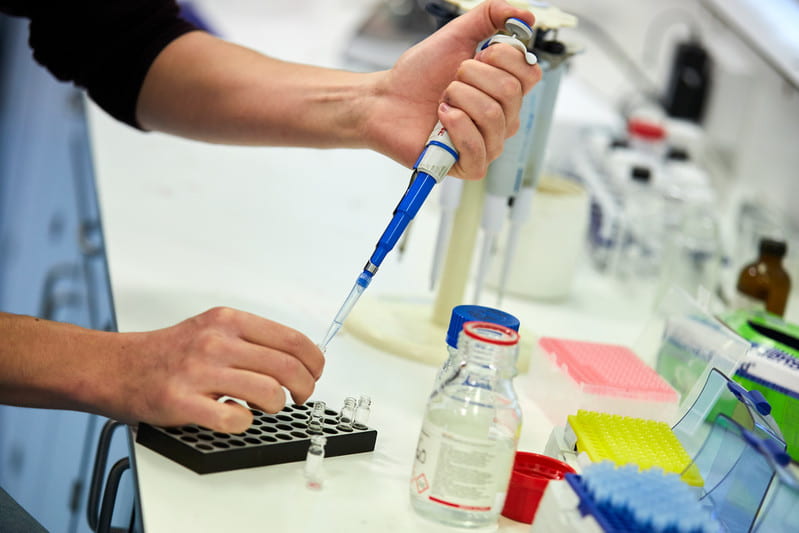Blog written by Chris Adams, Teaching Fellow, School of Chemistry, University of Bristol
This project was funded by the annual Jean Golding Institute seed corn funding scheme.
Our project was a collaboration between the Schools of Computer Science and Chemistry. The computer scientist side stems from the Epic Kitchens project, which used head-mounted GoPro cameras to capture video footage from the user’s perspective of people performing kitchen tasks. They then used the resulting dataset to set challenges to the computer vision community: can a computer learn to recognise tasks that are being done slightly differently by different people? And if it can, can the computer learn to recognise whether the procedure is being done well? Conceptually this is not so far from what we as educators do in an undergraduate student laboratory; we watch the students doing their practicals, and then make judgements about their competency. Since chemistry is essentially just cooking, we joined forces to record some video footage of undergraduates doing chemistry experiments. Ultimately, one can imagine the end point being a computer trained to recognize if an experiment was being done well and providing live feedback to the student; like a surgeon doing an operation wearing a camera that can guide them. This is way in the future though….
There were some technical aspects that we were interested in exploring – for example, chemistry often involves colourless liquids in transparent vessels. The human eye generally copes with this situation without any problem, but it’s much more of a challenge for computers. There were also some educational aspects to think about – we use videos a lot in the guidance that we give students, but these are not first person, and are professionally filmed. How would footage of real students doing real experiments compare? It was also interesting to have recordings of what the students actually do (as opposed to what they’re told to do) so we can see at which points they deviate from the instructions.
We used the funding to purchase a couple of GoPros to augment those we already had, and to fund two students to help with the project. Over the course of a month, we collected film of about 30 different students undertaking the same first year chemistry experiment, each film being about 16 GB of data (thanks to the rdsf for looking after this for us). It was interesting to see how the mere fact of wearing the camera affected the student’s behaviour; several of them commented that they made mistakes which they wouldn’t normally have done, simply because they were being watched. As somebody who has sat music exams in the recent past I can testify that this is true….
One of the research students then sat down and watched the films, creating a list of which activities were being carried out at what times, and we’re now in the process of feeding that information to the computer and training it to recognize what’s going on. This analysis is still ongoing, so watch this space….
The Jean Golding Institute seed corn funding scheme
The JGI offer funding to a handful of small pilot projects every year in our seed corn funding scheme – our next round of funding will be launched in the Autumn of 2019. Find out more about the funding and the projects we have supported in our projects page.


